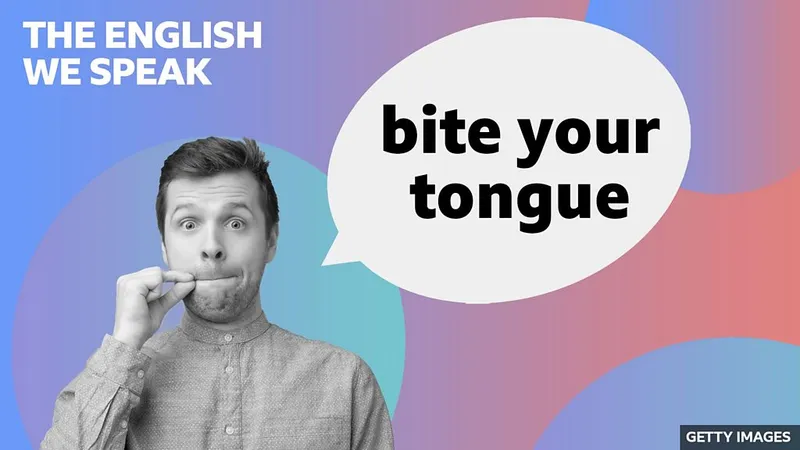Jiaying Hello and welcome to The English We Speak. I’m Jiaying.
Rob …and hello, I’m Rob… biting my tongue.
Jiaying Rob, ‘bite your tongue’ is our phrase today, but you don’t have to physically do it!
Rob Oh, phew! Biting my tongue was painful, and it was very hard to speak.
Jiaying Well, that’s why we sometimes tell people to bite their tongue. You see, when we ‘bite our tongue’, we are stopping ourselves from saying something that might offend or upset someone. It might be inappropriate too. You might also say to someone else ‘bite your tongue’. It means ‘don’t say it!’ But, Rob, we don’t physically bite our tongues.
Rob Right. So, for example, I shouldn’t tell someone they’ve put on weight? I should bite my tongue?
Jiaying Exactly. Just like the people in these examples…
Examples I wanted to tell him his new shirt looked awful, but I decided to bite my tongue!
I know the food’s not great, but please bite your tongue and just eat it.
I had to bite my tongue when my friend kept bragging about her ‘great’ exam results.
Jiaying This is The English We Speak from BBC Learning English. We’re learning about the phrase ‘bite your tongue’, which means to ‘stop yourself from saying something offensive, hurtful or inappropriate’. So, Rob, we shouldn’t tell people we think they’ve gained a bit of weight, should we?
Rob No, we should bite our tongue.
Jiaying Good. And I will bite my tongue about your weight.
Rob Excuse me? What about my weight?
Jiaying Sorry, Rob, I am biting my tongue.
Rob Hmm. Maybe saying nothing at all is better than saying something.
Do you fancy a biscuit?
Jiaying Thanks, Rob.
Rob Bye. Ouch, I’ve bitten my tongue!
